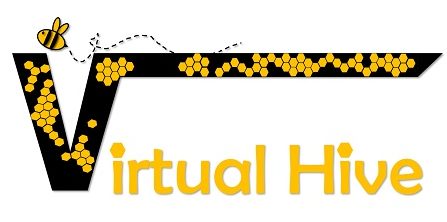The Shift from Traditional Search to AI-Based Search
As search habits evolve, fewer people rely solely on Google’s traditional search engine. Instead, AI-powered chatbots like Microsoft Copilot and ChatGPT are becoming primary sources for information gathering, recommendations, and purchasing decisions.
For tech manufacturing businesses, this means a new SEO strategy is needed, one that ensures AI chatbots recognize, reference, and recommend your products. Welcome to Generative Engine Optimization (GEO) – the next evolution of SEO.
Why AI Search is Different from Traditional SEO?
AI search engines do not function like Google’s ranking algorithms. Instead, they pull from structured data, authoritative sources, conversational queries, and AI training datasets. If tech manufacturers don’t optimize their content for AI-driven search, they risk losing visibility in future digital discovery methods.
Here’s what AI-based search optimization prioritizes:
- Conversational intent – AI chatbots favor natural language queries instead of keyword stuffing.
- Data-driven trust signals – AI references high-authority sites, structured data, and brand mentions.
- Schema markup & structured content – Helps AI interpret, understand, and recommend information.
- Multi-platform visibility – AI models analyze news articles, forums, and business directories, not just Google rankings.
Optimizing Tech Manufacturing SEO for AI Chatbots
1. Use Structured Data & Schema Markup
AI models rely on structured data to classify and retrieve relevant content. One of the best ways to optimize is through schema markup, a structured format that helps AI understand page elements (products, FAQs, reviews, etc.).
What is Schema Markup?
Schema markup is structured metadata that enhances a webpage’s visibility for AI search engines. It provides AI with machine-readable descriptions of key page elements.
How to Implement Schema Markup for Tech Manufacturers
If you’re running a product-based website, adding schema markup is critical for ensuring AI recognizes your company’s offerings.
Example: Schema Markup for a Tech Product
<script type=”application/ld+json”>
{
“@context”: “https://schema.org”,
“@type”: “Product”,
“name”: “Industrial-Grade AI Processor”,
“brand”: {
“@type”: “Brand”,
“name”: “TechPower Manufacturing”
},
“description”: “An advanced AI processor optimized for industrial automation.”,
“sku”: “TPM-2025”,
“url”: “https://techpowermanufacturing.com/ai-processor”,
“manufacturer”: {
“@type”: “Organization”,
“name”: “TechPower Manufacturing”,
“url”: “https://techpowermanufacturing.com”
},
“offers”: {
“@type”: “Offer”,
“priceCurrency”: “USD”,
“price”: “999.99”,
“availability”: “https://schema.org/InStock”
}
}
</script>
Steps to Implement:
- Copy the JSON snippet above and modify it with your product details.
- Insert it into the section of your product page’s HTML code.
- Use Google’s Schema Markup Testing Tool to verify correct implementation.
Adding structured product schema ensures AI can identify, categorize, and suggest your product in search results.
2. Optimize for Conversational Queries & Long-Tail Keywords
Since AI chatbots favor human-like conversations, optimize your content for natural language queries.
Example: Instead of targeting “AI processors for manufacturing,” focus on:
✅“What is the best AI processor for industrial automation?”
✅ “How do AI processors improve manufacturing efficiency?”
Use tools like AnswerThePublic or Google’s “People Also Ask” to identify common question-based searches.
3. Expand Content Distribution Beyond Google
AI models pull data from news articles, industry reports, directories, and forums. To ensure visibility in AI recommendations, focus on multi-channel content distribution:
Strategies for AI Content Optimization:
✅ Publish on industry blogs and news websites AI models reference.
✅ Get mentioned in authoritative sites, reports, and Wikipedia to establish credibility.
✅ Improve presence on platforms like LinkedIn, Medium, and research databases where AI crawls business insights.
4. Increase AI Citations & Authority Mentions
AI chatbots prioritize credible sources when generating responses. Increase your authority signals by:
- Getting backlinks from high-authority sources (tech blogs, manufacturing research sites).
- Contributing to AI-referenced industry reports to build brand credibility
- Ensuring consistent brand mentions across expert publications.
The more AI engines recognize your brand as authoritative, the higher the chances of recommendations in AI-generated responses.
5. Enhance AI Discoverability Through Featured Snippets & Summaries
AI searches favor clear and concise information. Format content using:
- Bullet points & numbered lists for quick AI summaries.
- Headings and structured content for easy AI interpretation.
- Direct answers to common questions to improve chatbot visibility.
Make sure product descriptions, technical specs, and customer FAQs are well-structured for AI summarization.
Future-Proofing SEO for AI Search Engines
As AI-powered search engines replace traditional Google search, businesses must adapt their SEO strategies. For tech manufacturers, implementing structured data, AI-friendly content, and multi-platform distribution will ensure long-term visibility in AI-generated queries.
Key Takeaways:
✅ Apply schema markup for structured AI understanding.
✅ Optimize content for conversational queries used in AI chatbots.
✅ Ensure multi-platform distribution beyond Google rankings.
✅ Build brand authority & citations for AI engines to reference.
RainDance Digital Marketing is a specialized SEO and lead generation agency with a freelance approach focused on helping tech companies rank highly in search engines and AI-powered platforms. Based in Amsterdam, RainDance provides strategic content creation, keyword research, and inbound marketing to drive visibility and conversions.
Key Services:
- SEO Optimization – Research-based keyword strategies for ranking in Google and AI-driven search engines.
- Lead Generation – Content distribution and backlink strategies to increase organic traffic.
- Digital Marketing for Tech & AI Companies – Specialized campaigns for B2B brands in tech, telecom, robotics, and AI.
- No Contract Commitments – Flexible engagement models for freelance and project-based collaborations.



